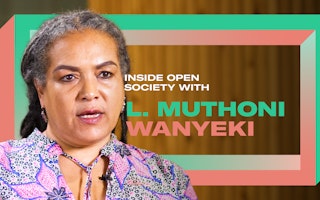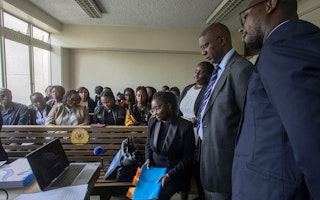Conference Summary: EU Africa Foreign Policy After Lisbon
By Marta Martinelli
The adoption of the Lisbon Treaty is likely to have both a deep and long-term impact on the EU’s relations with African states, regional bodies, and the continent as a whole. The rationalization of Commission and Council services into the External Action Service (EEAS) will eventually provide good leverage for EU external influence.
These were two principle conclusions from the October 18 conference organized by the Open Society Institute–Brussels, Chatham House, the Italian Institute of Foreign Affairs, the EU Institute of Security Studies and the Observatoire de l’Afrique, on EU foreign policy towards Africa since the adoption of the Lisbon Treaty.
The conference was introduced by Ambassador Nicholas Westcott, managing director for Africa in the EEAS. It gathered over 100 participants combining practitioners, academics, and EU and African decision-makers.
In his comments, Ambassador Westcott highlighted the need for a people-centered approach to EU policies in Africa, structured around three themes:
1) achieving peace and security (including through the fight against terrorism, humanitarian work and helping to find political solutions to conflicts);
2) achieving prosperity (including through promoting mobility, creation of a business friendly environment, measures to address the impact of climate change on the potential for prosperity, migration and development work); and
3) EU-Africa partnerships (of institutions and of people).
The Open Society Foundations’ head for Eastern Africa Binaifer Nowrojee discussed the EU’s role in Kenya during and in the aftermath of the 2007 elections. Mathias Hounkpe came from Guinea to share his expertise on Electoral Management Bodies and talk in particular about the EU’s role in Côte d’Ivoire, including scenarios for future engagement.
Marta Martinelli discussed the lack of consolidated good practices for the EU’s democracy support initiatives; incoherent and competing interests that compromise the EU’s work in democracy support (development, security, economic, geopolitical); and the need for more effective civil society support.
Other speakers reviewed the EU’s operational modalities and initiatives through geographical and thematic case studies covering a range of countries and cross-cutting issues. These included how to articulate member states' priorities and interests within EEAS policies; security governance and EU crisis management in Africa; regional (AU) and sub-regional (RECs) frameworks; and the EU's engagement with other international actors.
The scope of issues and range of different national contexts raised in this one-day conference illustrates the task ahead of the EEAS, and the need for co-ordination and cooperation with other international actors, within and between EU bodies, and between the EU and its member states.
OSI-Brussels contact on Africa: Marta Martinelli

Until February 2022, Marta Martinelli was head of the EU external relations team for the Open Society European Policy Institute.


